
Having
penned some of
Hollywood
’s most entertaining and memorable crime dramas such as DEAD
AGAIN, OUT OF SIGHT, MINORITY REPORT and GET SHORTY, award-winning
writer Scott Frank has continuously demonstrated a capacity for his
unlimited imagination. He is a
creative genius who takes great pride in character driven plots
emphasizing the importance of multi-dimensional characters.
Making his directorial debut with his upcoming crime thriller
THE
LOOKOUT, Frank exemplifies the significance of perseverance
in attaining his goals and bringing a ten-year-old dream to
fruition.
THE
LOOKOUT unravels the story of a young man suffering with mental and
physical limitations, who finds himself captivated, manipulated and
recruited by a bad guy with a bank robbery scheme.
A screenplay containing such diverse and layered characters,
confirms why
Hollywood
stars are competing to personify one of the rich and challenging
parts born out of Frank’s ingenuity. I had the great pleasure of
going face-to-face with one of
Hollywood
’s most respected and sought after writers to talk about his
inspirations, directing, future projects and his desire to work with
George Miller. Check out
what the grounded, kind, friendly and incredibly humble
director/writer had to say.
Scott Frank

Scott
Frank: “I love JoBlo.com. I
read it a lot. I’ve been
reading it for a few years…since it first came out.
There are a few sites I check out couple of times a week.”
Very
cool, thanks! Now in
making your directorial debut, what type of challenges did you
encounter as a director?
Interestingly
enough, the hardest thing about directing this film in all honesty
was the weather. That
made it really hard. The
weather was so severe and cold.
We were four hours north of
Fargo
, in
Winnipeg
, way up in the middle of
Canada
. For some of it were
four hours outside of Winnipeg, in the middle of nowhere.
It was very cold and we had snow, icy rain and wind and we
were shooting at night outside.
So all of that and thirty-forty below weather was for me the
hardest part to get used to. I
felt like it hobbled me a little bit from keeping my perspective and
energy level and all of that. It
was very tricky under those circumstances.
That was the hardest thing.
I
think the other hardest part about directing was, with writing if
you’re stuck while writing, you stop.
You stop and take a day, a month, and a vacation or do
whatever it is you need to do until you’re unstuck.
You’re basically very gentle on your creative self and
waiting for that new inspiration to come.
When you’re shooting a movie and you’re stuck, there is a
locomotive right behind you that you’re running in front of.
If you stop, it’s going to run you over.
So you have no time to sit there, calm down and go take a nap
and think about it. You
really have to make choices right then and there.
Sometimes the choices are really great – the choices that
come out of that kind of pressure are often times really interesting
choices that you might have not made maybe in the safety of your own
room and sometimes they’re the wrong choices because you made them
too fast and just didn’t think them all the way through.
In hindsight, were there any choices that you made in making this film
that you now regret?
Frequently.
Oh yeah, everyday and in fact the other thing that was
difficult about it is that you don’t accept.
Writers who direct often believe that because they are
directing, they’re not going to have total control and they want
to direct because they want control.
They’re tired of others controlling their material.
First of all, I didn’t direct for those reasons.
I’ve been very happy with the directors I’ve worked for
and have had great experiences.
I directed because I wanted a personal, creative experience.
The one thing that was so hard to control for me which I
thought would be there, the one thing I didn’t realize is just how
disappointed you are on a daily basis.
Just how, what you have in your mind at the start of the day,
isn’t what you end up with at the end of the day.
When you say disappointed, do you
mean “disappointment“
in yourself or the film?
All
of the above. You’re
not disappointed in the actors.
You’re disappointed in the fact that the machinery is such
a big piece of machinery you’re using to paint with.
It’s such a big complicated machine with so many moving
parts but there are a million variables.
It can be the weather, it can be the prop person showing up
with a completely different prop that you now have to get your head
around, the set is somehow different than you’d thought it was
going to be or it had to be adjusted in order to accommodate the way
we were going to shoot it or we’re going to shoot it completely
differently because we tried to shoot it the way we thought about it
but it doesn’t work, the actor doesn’t feel good, you don’t
have good extras, they don’t look right so now you have to do
without them.
All
of these things, whatever it is, contribute to this sort of grand
sense of disappointment and all mound up.
I called up my brother in law, Phil Joanou who’s a
filmmaker, and I called him one day from Canada asking him if he’s
disappointed all time on set. He
said, “You know, if I get 5% of what I want everyday, that’s a
great day.” He’s a
very controlled filmmaker so that’s a really good day if he gets
5%. He said, “If you
told me you were getting everything you want and were thrilled, I
would say you were probably making crap.”
There are some directors though who will do 50-80 takes like
Kubrick over and over until they get it exactly right.
I don’t have the attention span to do that and I didn’t
have the time or money to do that either.
I just couldn’t sit there for 50 takes not knowing what
I’m looking at anymore. Some
directors can.
How
long did it take you to complete the film and what was the budget?
It
took forty-five days and it was 15 million.
Would you consider directing another film?
I
can’t wait to do it again!
The minute I finished, I wanted to direct THE LOOKOUT all
over again knowing what I knew but I cannot wait to make another
film. I really can’t
wait.
What inspired you to write THE LOOKOUT screenplay?
How did the story
evolve?
It
was from a couple of places. Ten-fifteen
years I knew someone peripherally, not a close friend, who had been
in a horrible accident and had essentially gone into a coma and come
out of that coma an entirely new individual and I thought hmmm.
Whereas before he was a very physical athletic guy and very
interested in graduate school and so on, after the accident, all of
that disappeared from his personality.
He had no interest in any of that stuff not because he was
depressed or the accident but because he was a new person.
Yet he could completely remember his old self and experience
through his memory his old self but he was stuck.
He couldn’t be that guy anymore so he had to get to know
this new person. I
thought wow, that’s an interesting place to be.
I thought about him as a character but I didn’t want to
write about that issue because then it would be a TV movie if I
wrote about that injury.
So
I filed it away and I was in Kansas thinking about writing about
farm banks I’d been reading about in Nebraska, Iowa and so on.
They’re located in the middle of hundreds of farms of all
sizes and these little banks normally during the week would have
600-700 hundred dollars in the vault because of a hardware store or
café but that’s about it. Then
twice a year they would get all this USDA money and the agribusiness
cash would come to pay the farmers and pay them in cash.
So for a couple of weeks there might be a million or two
million sitting there in a bank that’s really old, in a very quite
town where if you set off a bomb, no one would hear.
So I thought, ‘why isn’t anyone robbing these banks?”
While
I was researching that, my other story started to just come together
to this one and became one story.
I thought wow, what about locating the character in a very
rural environment and I thought what if he could have a thrill
because I didn’t want to write about a bank robbery.
I’m not interested in a heist but more interested in the
characters around the heist and starting with this guy, that’s
pretty interesting to me. The
melodrama around the bank robbery is what I was more interested in.
The relationship with his family, his roommate, with the girl
was much more fun to write. So
I got started from there. I
really like to write from character.
This was a ten year haul for me and the reason I stayed in
love with the movie wasn’t the idea for the movie but I just loved
and cared so much about these characters.
How did a movie that took so long affect the casting process?
I
had a specific type of person but never a visual because then
you’re always disappointed. If
you write a movie for Tom Cruise and don’t get him, then everyone
else is sort of second place and it’s difficult because in the
back of your mind you will always be wishing you had Tom Cruise.
I tend to think of dead actors when writing, like Steve
McQueen. But for this
movie because I had so much time, when the actors came in, I talked
to them about the material and helped them through the process of
auditioning.
Has the script changed at all from the original ten years ago?
The
basic plotline for the most part is very similar with one
fundamental difference. The
original script was longer and more ambitious.
In this movie the bank robbery goes awry and the take Lewis
in the last minute for their trade.
Originally back in 1999 Sam Mendes was supposed to direct the
film but left to do ROAD TO PERDITION. Then
David Fincher came on to direct but that didn’t work out because
he wanted to make the film for the bargain basement price of 80
million dollars but Dreamworks had a problem with that and then I
came on.
David
and I changed the original concept so that Chris refuses to do the
robbery and comes home to find everything gone including Lewis
except for a phone which rings and Gary says from the other end “I
now have your whole life.” Lewis
is being held with all his furniture in the basement of a farmhouse
and the person watching him is Luvlee whom he develops a
relationship with instead. At
some point Lewis tries to escape and gets caught connecting to he
plot in the way it unfolds now.
So the original was much longer and it made it too much about
a bank robbery.
How did you recruit such a great
ensemble cast and give a splendid actress like Carla Gugino
such a small part?
She
did me a favor. She had
two scenes and I cut one scene, which was a great second scene, but
the movie had already established what I thought needed to be
established so we didn’t need to see anymore.
If I’d known I wouldn’t have put her through that because
people are going to wonder why’s she’s in the movie for that one
scene. What I should
have done is had her do some kind of unbuilt cameo because I love
Carla, I just love her. I would put her in every movie I ever made.
So I asked her to do me a favor and the second scene was
actually wonderful. But
we came to the point where the movie didn’t need it or want it.
So I cut it out. She
really helped me out and the best thing of it all was that I shot
that scene my first day. So
having her and Joe (Gordon-Levitt) shoot, and having Carla this very
calm and soothing presence there for me my first day of shooting
made a world of difference.
What about casting Matthew Goode as a bad guy?
It was quite a switch for him from his previous characters.
I
brought him over because my casting director had met him and she
said, “there’s something about him” and I thought “really?
He doesn’t seem at all like…he seems like Rupert
Everett.” She
said, “Just meet him” and he came over and he was spectacular in
his audition and I just kept bringing him back to see how he read
with Joe and he was great. He just had this very dark, intelligent,
sexual side to him that I loved and he was funny.
What are you working on next?
I’m
working on an original for Universal that I hope to write and direct
again if they let me. It’s
my midlife crisis movie called “44” and it takes place in
the world of automotive design. Essentially
a week before this guy’s 44th birthday he runs amuck.
And whose life is this based on?
Ah,
it could be mine (smiling). Let’s
just say it’s a cautionary tail.
Do you have anyone in mind to cast in it?
I’m
thinking about lots of people but I want to write it first and see.
OUT OF SIGHT was such a hit! Any
plans of reuniting with Clooney or Lopez again?
I’d
love to work with them again. Absolutely.
I had great experiences with all of them and they were all
incredibly good to me I remember.
Were you approached to write the sequel screenplay for BE COOL as a
follow up to your original hit GET SHORTY?
Yes.
I was approached but I just felt like I didn’t want to do
it. I felt like I’d already done the characters but I didn’t
like the book to be honest. The
book was fun to read but I didn’t think it was much of a movie.
So I said I felt like I’ve done it before and it didn’t
feel like anything new to me even though they were all nice people
and I’d worked with the producers forever.
I just didn’t want to do a sequel.
Interestingly enough, Paul
Verhoeven said the same thing about ROBOCOP.
He believed MINORITY REPORT was the sequel for ROBOCOP.
Is that true?
No,
but that’s interesting.
Is there anyone whom you are very interested in working with?
George
Miller. I love to work
with Steven Soderbergh and Steven Spielberg again.
Personally I’m dying to work with George Miller.
I just REALLY want to work with him.
Are there any other script ideas aside from 44, which you are working on?
I’m
adopting a Jonathan Tropper book called AFTER HAILEY which is about
a an old guy who marries a beautiful 40 year old woman but she dies
after a year of marriage and suddenly he’s left to raise her
delinquent stoner son. It’s a very funny story.
I also wrote a western called GODLESS that I’m also hoping
to direct but it’s a tough road these days with westerns.
So I‘m trying to do that and we’ll see.
I’m working on a few different things.
Why do you think our culture isn’t open to the western genre any
longer?
They
are into more visceral kinds of entertainment now.
It’s also a worldwide audience now and in Japan, the last
thing they want to watch is a Western and that’s where all the
money is. It’s foreign
value. Globally, action is probably the most popular genre.
I know American comedy doesn’t travel well either.
——


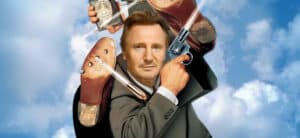
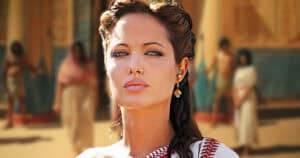
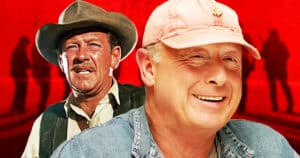
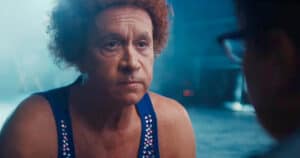

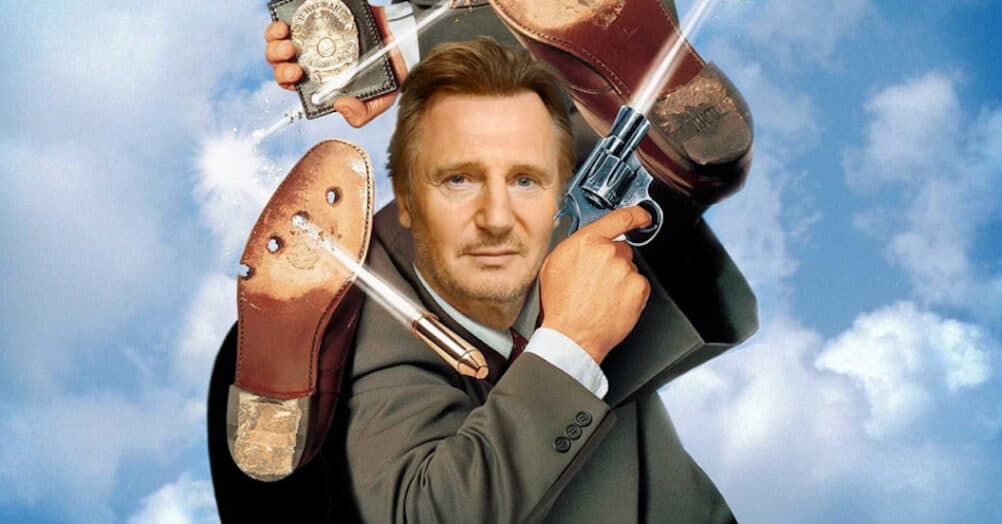
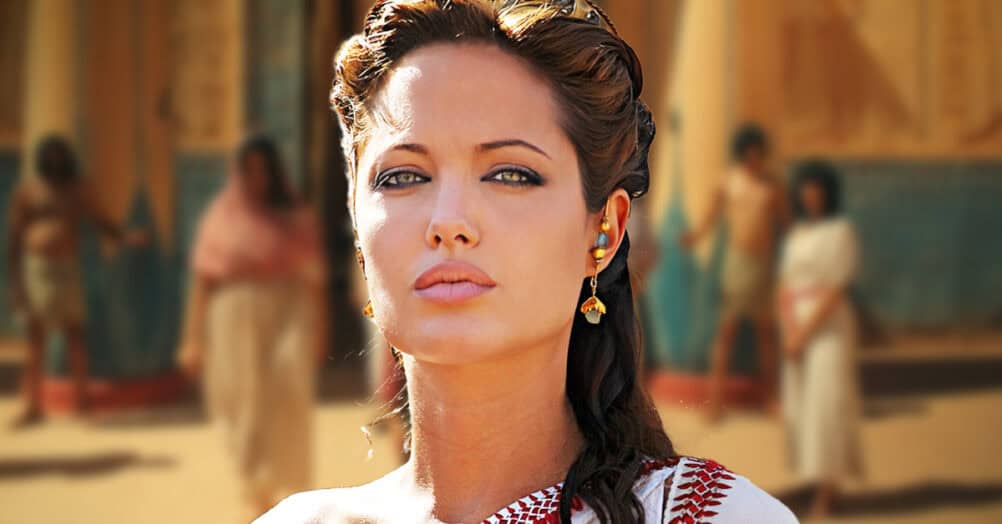
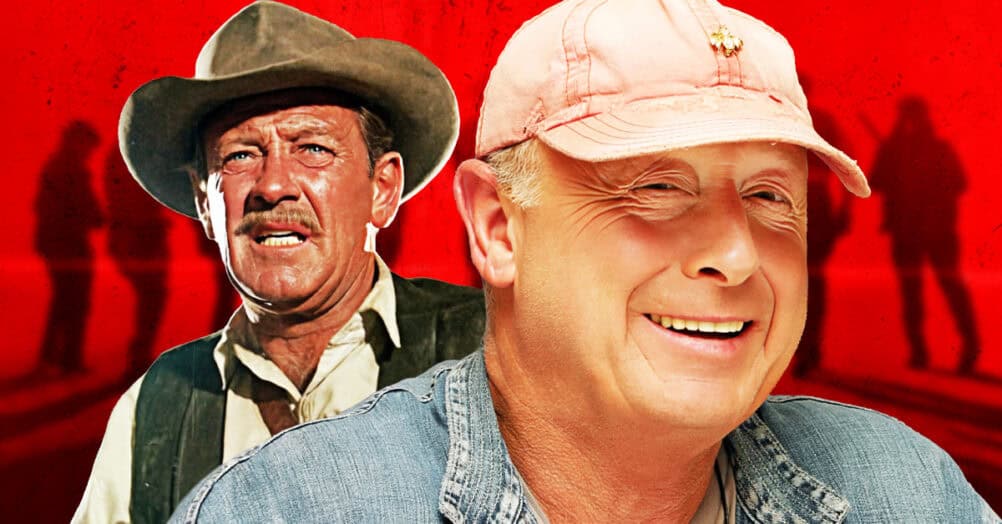
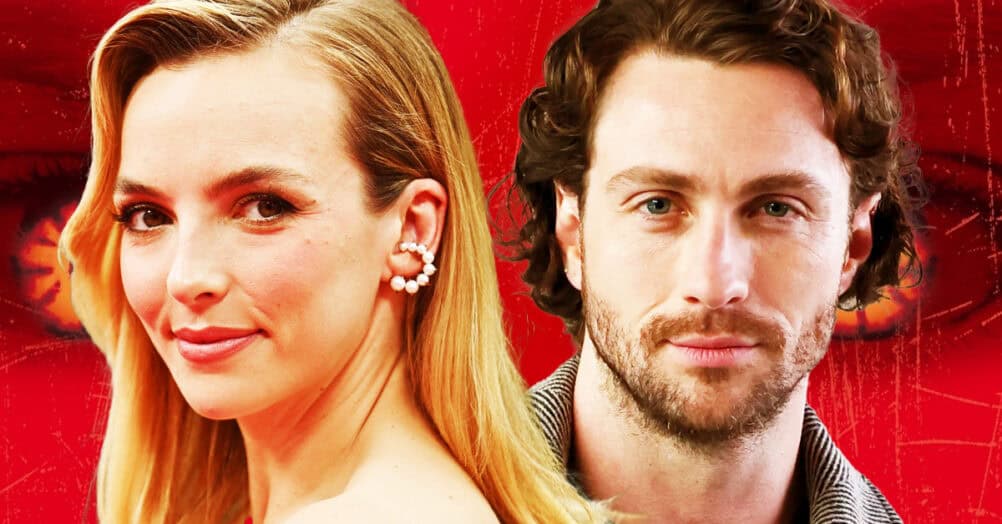
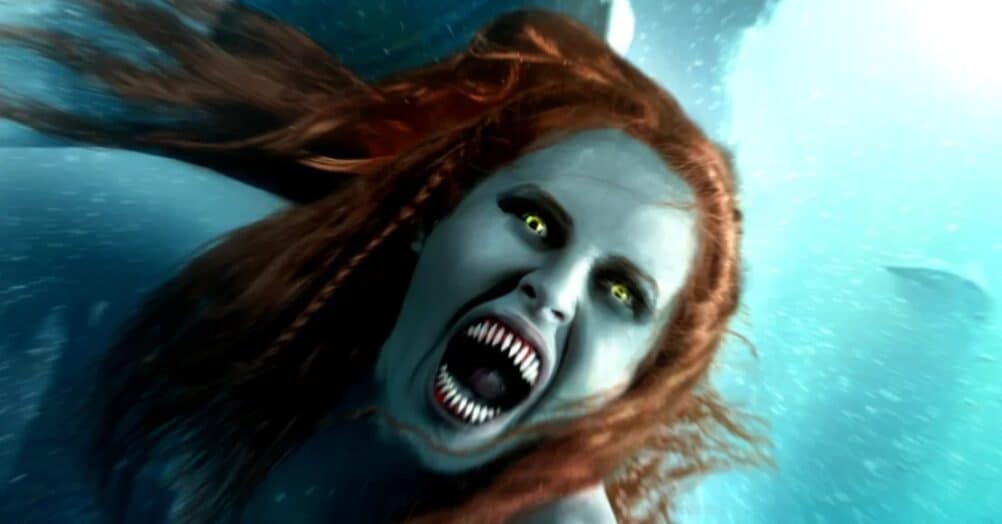
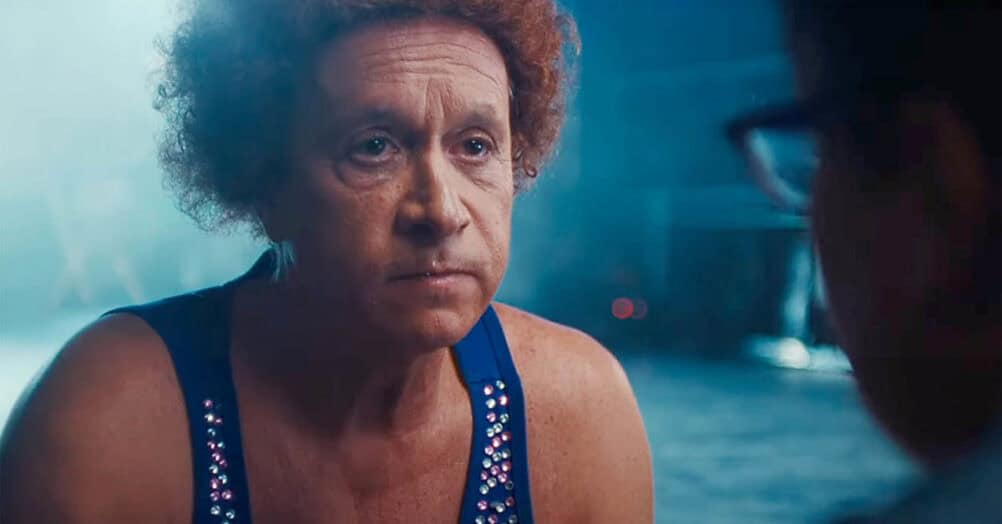
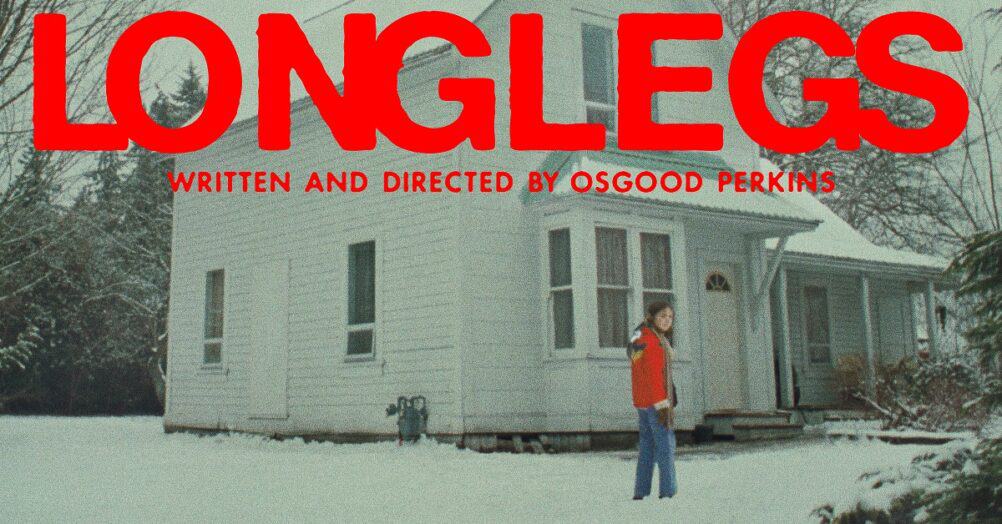
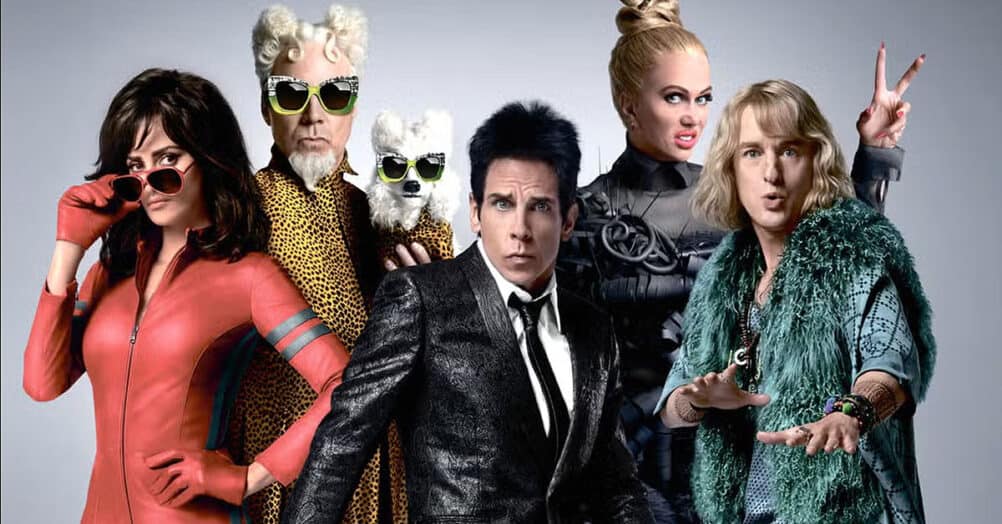
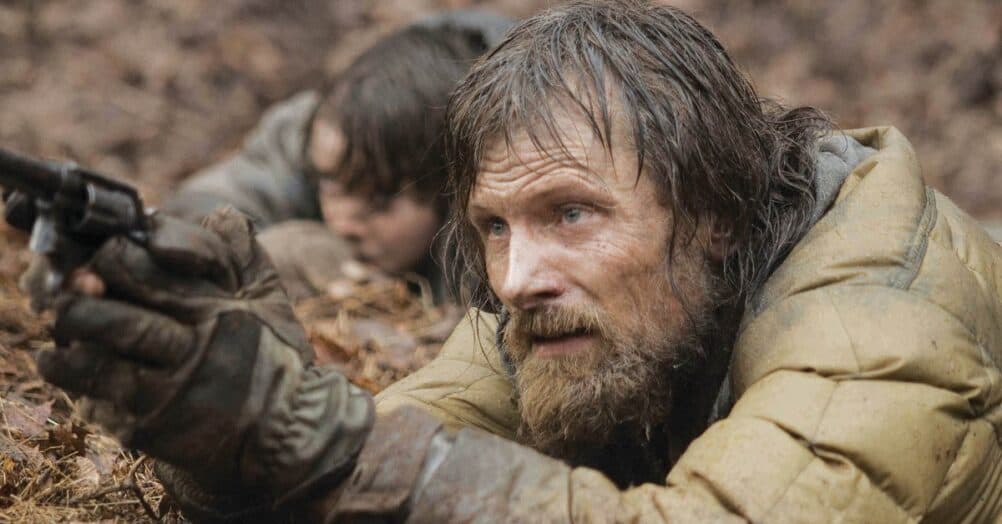

Follow the JOBLO MOVIE NETWORK
Follow us on YOUTUBE
Follow ARROW IN THE HEAD
Follow AITH on YOUTUBE